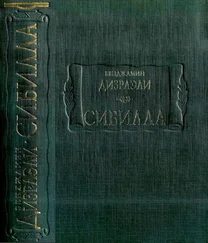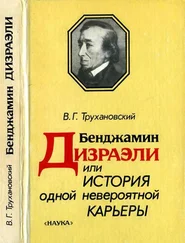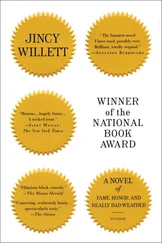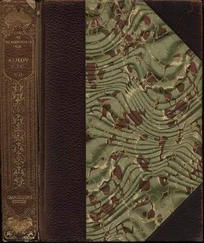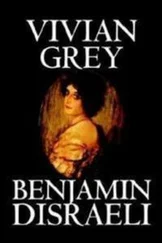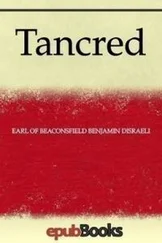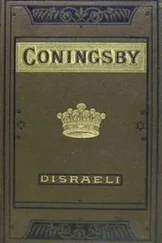"By Jove! that's a flash," exclaimed Lord Milford, as a blaze of lightning seemed to suffuse the chamber, and the beaming lustres turned white and ghastly in the glare.
The thunder rolled over the building. There was a dead silence. Was it going to rain? Was it going to pour? Was the storm confined to the metropolis? Would it reach Epsom? A deluge, and the course would be a quagmire, and strength might baffle speed.
Another flash, another explosion, the hissing noise of rain. Lord Milford moved aside, and jealous of the eye of another, read a letter from Chifney, and in a few minutes afterwards offered to take the odds against Pocket Hercules. Mr Latour walked to the window, surveyed the heavens, sighed that there was not time to send his tiger from the door to Epsom, and get information whether the storm had reached the Surrey hills, for to–night's operations. It was too late. So he took a rusk and a glass of lemonade, and retired to rest with a cool head and a cooler heart.
The storm raged, the incessant flash played as it were round the burnished cornice of the chamber, and threw a lurid hue on the scenes of Watteau and Boucher that sparkled in the medallions over the lofty doors. The thunderbolts seemed to descend in clattering confusion upon the roof. Sometimes there was a moment of dead silence, broken only by the pattering of the rain in the street without, or the pattering of the dice in a chamber at hand. Then horses were backed, bets made, and there were loud and frequent calls for brimming goblets from hurrying waiters, distracted by the lightning and deafened by the peal. It seemed a scene and a supper where the marble guest of Juan might have been expected, and had he arrived, he would have found probably hearts as bold and spirits as reckless as he encountered in Andalusia.
"Will any one do anything about Hybiscus?" sang out a gentleman in the ring at Epsom. It was full of eager groups; round the betting post a swarming cluster, while the magic circle itself was surrounded by a host of horsemen shouting from their saddles the odds they were ready to receive or give, and the names of the horses they were prepared to back or to oppose.
"Will any one do anything about Hybiscus?"
"I'll give you five to one," said a tall, stiff Saxon peer, in a white great coat.
"No; I'll take six."
The tall, stiff peer in the white great coat mused for a moment with his pencil at his lip, and then said, "Well, I'll give you six. What do you say about Mango?"
"Eleven to two against Mango," called out a little humpbacked man in a shrill voice, but with the air of one who was master of his work.
"I should like to do a little business with you, Mr Chippendale," said Lord Milford in a coaxing tone, "but I must have six to one."
"Eleven to two, and no mistake," said this keeper of a second–rate gaming–house, who, known by the flattering appellation of Hump Chippendale, now turned with malignant abruptness from the heir apparent of an English earldom.
"You shall have six to one, my Lord," said Captain Spruce, a debonair personage with a well–turned silk hat arranged a little aside, his coloured cravat tied with precision, his whiskers trimmed like a quickset hedge. Spruce, who had earned his title of Captain on the plains of Newmarket, which had witnessed for many a year his successful exploits, had a weakness for the aristocracy, who knowing his graceful infirmity patronized him with condescending dexterity, acknowledged his existence in Pall Mall as well as at Tattersalls, and thus occasionally got a point more than the betting out of him. Hump Chippendale had none of these gentle failings; he was a democratic leg, who loved to fleece a noble, and thought all men were born equal—a consoling creed that was a hedge for his hump.
"Seven to four against the favourite; seven to two against Caravan; eleven to two against Mango. What about Benedict? Will any one do anything about Pocket Hercules? Thirty to one against Dardanelles."
"Done."
"Five and thirty ponies to one against Phosphorus," shouted a little man vociferously and repeatedly.
"I will give forty," said Lord Milford. No answer,—nothing done.
"Forty to one!" murmured Egremont who stood against Phosphorus. A little nervous, he said to the peer in the white great coat, "Don't you think that Phosphorus may after all have some chance?"
"I should be cursed sorry to be deep against him," said the peer.
Egremont with a quivering lip walked away. He consulted his book; he meditated anxiously. Should he hedge? It was scarcely worth while to mar the symmetry of his winnings; he stood "so well" by all the favourites; and for a horse at forty to one. No; he would trust his star, he would not hedge.
"Mr Chippendale," whispered the peer in the white great coat, "go and press Mr Egremont about Phosphorus. I should not be surprised if you got a good thing."
At this moment, a huge, broad–faced, rosy–gilled fellow, with one of those good–humoured yet cunning countenances that we meet occasionally on the northern side of the Trent, rode up to the ring on a square cob and dismounting entered the circle. He was a carcase butcher, famous in Carnaby market, and the prime councillor of a distinguished nobleman for whom privately he betted on commission. His secret service to–day was to bet against his noble employer's own horse, and so he at once sung out, "Twenty to one against Man–trap."
A young gentleman just launched into the world, and who, proud of his ancient and spreading acres, was now making his first book, seeing Man–trap marked eighteen to one on the cards, jumped eagerly at this bargain, while Lord Fitzheron and Mr Berners who were at hand and who in their days had found their names in the book of the carcase butcher, and grown wise by it, interchanged a smile.
"Mr Egremont will not take," said Hump Chippendale to the peer in the white great coat.
"You must have been too eager," said his noble friend.
The ring is up; the last odds declared; all gallop away to the Warren. A few minutes, only a few minutes, and the event that for twelve months has been the pivot of so much calculation, of such subtile combinations, of such deep conspiracies, round which the thought and passion of the sporting world have hung like eagles, will be recorded in the fleeting tablets of the past. But what minutes! Count them by sensation and not by calendars, and each moment is a day and the race a life. Hogarth in a coarse and yet animated sketch has painted "Before" and "After." A creative spirit of a higher vein might develope the simplicity of the idea with sublimer accessories. Pompeius before Pharsalia, Harold before Hastings, Napoleon before Waterloo, might afford some striking contrasts to the immediate catastrophe of their fortunes. Finer still the inspired mariner who has just discovered a new world; the sage who has revealed a new planet; and yet the "Before" and "After" of a first–rate English race, in the degree of its excitement, and sometimes in the tragic emotions of its close, may vie even with these.
They are saddling the horses; Caravan looks in great condition; and a scornful smile seems to play upon the handsome features of Pavis, as in the becoming colours of his employer, he gracefully gallops his horse before his admiring supporters. Egremont in the delight of an English patrician scarcely saw Mango, and never even thought of Phosphorus—Phosphorus, who, by the bye, was the first horse that showed, with both his forelegs bandaged.
They are off!
As soon as they are well away, Chifney makes the running with Pocket Hercules. Up to the Rubbing House he is leading; this is the only point the eye can select. Higher up the hill, Caravan, Hybiscus, Benedict, Mahometan, Phosphorus, Michel Fell, and Rat–trap are with the grey, forming a front rank, and at the new ground the pace has told its tale, for half a dozen are already out of the race.
Читать дальше

